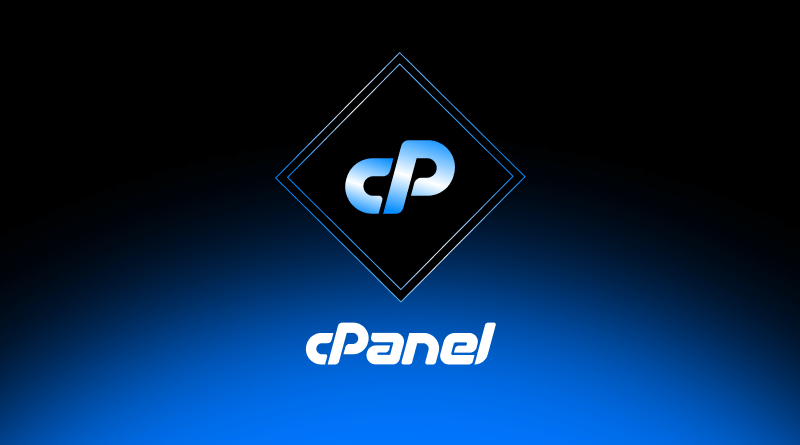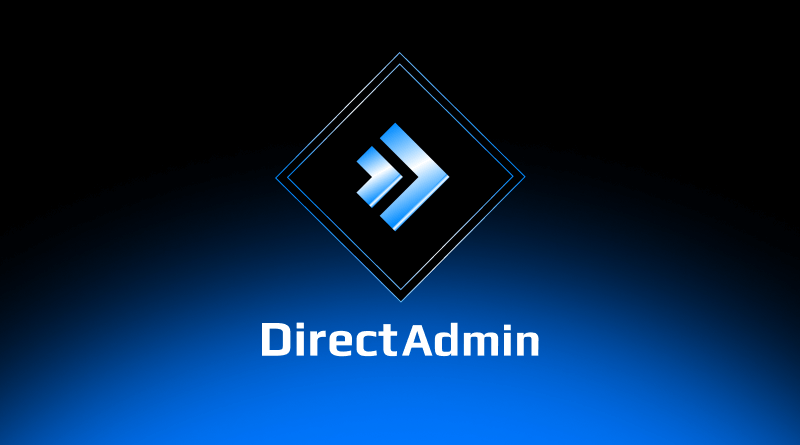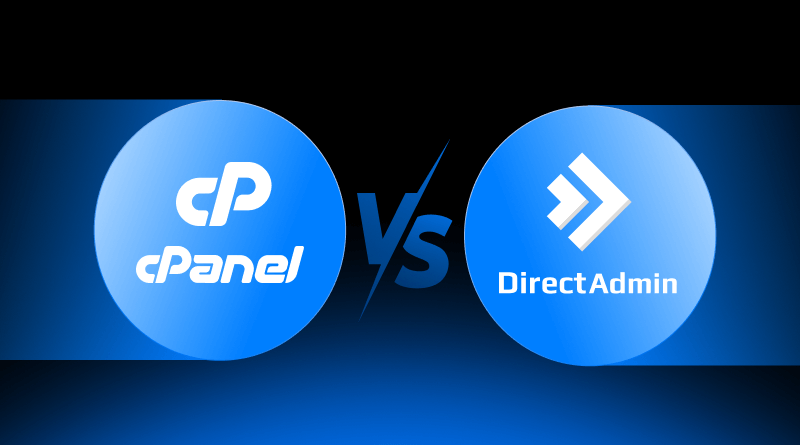In the Internet world, every millisecond counts—especially on a busy server. An effective web hosting control panel can make server management much more seamless. As a developer, business owner, or even a hosting provider, you know that how well the control panel is designed and the choice you make for managing multi-tier accounts, which include websites, domains, databases, emails, and server resources, directly affect the efficiency of your workflows. It is imperative for a hosting panel to assist in the automation of technical processes and enhance performance and security.
Currently, the most popular control panels are cPanel and DirectAdmin. Both have been serving the web hosting industry for years, and they continue to be two of the leading solutions because of the vast array of tools and functionalities they offer, catering to all users from complete novices to experienced sysadmins.
In this cPanel vs. DirectAdmin comparison, we will focus on evaluating and comparing their features, user experience, pricing, security, and performance. Whether you’re considering a switch or exploring a hosting panel that aligns with your specific requirements, this blog provides the insights you need to make an informed decision.
Table Of Content
Understanding cPanel

Let’s begin with understanding what is cPanel? It is one of the most recognized names in the industry. They have been in the hosting ecosystem for over two decades and continue to dominate the field. cPanel has an icon-based dashboard that turns complex tasks like server and website management into simpler, manageable tasks. It allows users to control domains, emails, files, and everything else in one central hub.
cPanel’s Softaculous, Cloudflare, and JetBackup are just some of the many third-party applications that can be integrated into cPanel without any issues. The reliability and versatility of cPanel is maintained by the wide range of plugins and constant system update it offers.
We can see cPanel hosting is well-known among shared hosting providers, small business owners, and beginners who want a simple, easy-to-use interface. If you are running an e-commerce store or a simple blog, having a cPanel license grants you effortless control over your servers and provides adequate hosting.
Understanding DirectAdmin

DirectAdmin might not have the popularity of cPanel but it offers some unique features that can attract users; this is why it is essential to know about DirectAdmin. Because of its light weight architecture, DirectAdmin doesn’t require as much power to run and serves as a great alternative for users with limited resources. Unlike cPanel, DirectAdmin has to repurpose its resources effectively.
A significant competitive edge stems from the DirectAdmin dashboard’s focus on speed, online flow, and overall user experience. Even though it is lightweight, it offers core services such as email accounts and forwarding, domain registrations, DNS records, FTP, and databases.
Because of the much lower DirectAdmin price relative to other cPanel competitors, it’s popular among hosting resellers and developers, and also for the more price-conscious businesses that still require dependable control and performance. Those who value simplicity and prefer a product without additional embellishments still know they can rely on DirectAdmin in the ever-changing world of web hosting.
Head-to-Head Comparison: cPanel vs. DirectAdmin
cPanel vs. DirectAdmin: An overview
| Aspect | cPanel | DirectAdmin |
| User Interface | Visually rich, icon-based, and highly intuitive; ideal for beginners. | Minimalist, faster loading, and efficient for experienced users. |
| Ease of Use | Very user-friendly with separate WHM for admin tasks. | Slight learning curve; streamlined once accustomed. |
| Core Features | Full suite of hosting features, rich plugin, and app integration. | Covers all essential features with focus on performance. |
| Performance | Resource-heavy; best on powerful servers. | Lightweight control panel with low resource usage hosting. |
| Pricing & Licensing | Higher cPanel pricing; per-account licensing model. | Lower, predictable DirectAdmin cost; flat/tiered license plans. |
| Security | Advanced tools like Imunify360 and frequent updates. | Built-in DirectAdmin security features; effective core protection. |
| Support & Community | Extensive cPanel support resources and a global community. | Growing DirectAdmin support and quality documentation. |
Related Read: Difference Between cPanel and Admin Panel
1. cPanel vs. DirectAdmin: User Interface and Ease of Use
To start, cPanel is renowned for its aesthetic, icon-based interface, which is simple to navigate, letting even novice users manage their websites, emails, and domains with little to no assistance. It uses WHM (Web Host Manager) as a separate account for administrative functions, which helps streamline user access and improves focus for resellers and hosting providers.
In comparison, DirectAdmin’s interface is minimalist and compact, making it resource-efficient and faster. While cPanel users may find it a bit jarring, it provides a streamlined experience after some time. For advanced users and those managing several accounts, DirectAdmin’s speed combined with usability makes it an ideal choice.
2. cPanel vs. DirectAdmin: Features and Functionality
Daily activities related to the server and website operations are easily facilitated by essential hosting features, which are provided by both control panels. These include file management through File Manager or FTP, creating email accounts, managing MySQL/MariaDB databases, handling domains, configuring SSL certificates, scheduling backups, and one-click application installations for WordPress and other software.
cPanel is known for having an extensive toolset. The ecosystem of cPanel plugins contains Imunify360, CloudLinux, JetBackup, and Softaculous, which improve both security and usability. Moreover, cPanel provides a powerful API framework that enables automation and integration with external applications. This is helpful for developers and system administrators who want more control over their systems.
Unlike cPanel, DirectAdmin covers all main functions but with a narrower focus. It may have fewer third-party plugins, but DirectAdmin adds native support for DNS clustering, Let’s Encrypt SSL, and more UI options. It’s built with a focus on serving its users well, making it ideal for those who value simplicity over complexity and the abundance of features.
3. cPanel vs. DirectAdmin: Performance & Resource Usage
As a lightweight control panel, DirectAdmin performs well in terms of resource usage in hosted environments. It uses significantly less CPU and memory, making it a better option for VPS and budget cloud hosting, where optimized web server performance is crucial, even when resources are constrained.
On the other hand, cPanel’s extensive features come at the cost of system resources. It works best on dedicated or high-performance servers where processing power and scalability are not constrained. Hosting providers with access to more hardware resources will appreciate cPanel’s full-featured environment.
4. cPanel vs. DirectAdmin: Pricing & Licensing
As time goes on, cPanel pricing has evolved from a flat-rate model to a per-account pricing structure. This creates a challenge for large-scale or reseller providers, as the cPanel license becomes more expensive with each account. Although cPanel provides value, many users have been turned away due to the cost.
DirectAdmin cost is far more predictable and budget-friendly. Its DirectAdmin license options include flat-rate and tiered plans based on usage, which are better suited for individuals and hosting providers managing multiple sites. For many, especially those looking to reduce operational expenses, DirectAdmin serves as a low-cost hosting control panel while retaining key functionality.
5. cPanel vs. DirectAdmin: Security
Both cPanel and DirectAdmin have their unique robust security features, like integrated SSL certificates, spam and firewall support (CSF), IP blocking, and other spam protection tools.
cPanel partnered with companies like Imunify360 and ConfigServer, which add real-time malware scanning, patch management, strengthened server-side firewalls, and other tools to the cPanel security umbrella. Coupled with regular updates and the active developer network, cPanel remains secure.
Brute force attacks, two-factor authentication, remote secure access through Login Keys, and strict password policies all strengthen the security of DirectAdmin. Its protective features may be simpler compared to others, but they are still effective.
6. cPanel vs. DirectAdmin: Support & Community
Founded on a solid reputation, cPanel support provides official ticketing systems, round-the-clock technical support (for licensed users), and an extensive online database of resources. In addition, the vast user community actively participates in providing additional support through forums, blogs, and even video tutorials.
The DirectAdmin support is relatively new, but it is growing rapidly. It now features comprehensive hosting guides, active ticket response capabilities, and community-based forums. As the platform is more widely adopted, the resources available for DirectAdmin support are steadily increasing.
DirectAdmin vs. Plesk: A Brief Look
In the discussion of the comparison of control panels, one more case to consider is DirectAdmin vs. Plesk. While loved for being inexpensive and light, Plesk is known to have a more contemporary design and better functionalities for Windows servers, which DirectAdmin lacks. Furthermore, Plesk is favored by developers for its Git integration, support for Docker, and sophisticated WordPress Toolkit.
The recent changes in the parent company for both cPanel and Plesk have shifted the business landscape, which is why you can now find users exploring cPanel alternatives like DirectAdmin. The preferences of users might differ based on their requirements, leading to a split between DirectAdmin and Plesk based on Windows features and Linux requirements.
As for simplicity, Linux users tend to go for performance-oriented options such as DirectAdmin, while Plesk attracts Windows users and those who prefer more complex hybrid setups.
Related Read: Plesk Vs cPanel: What Things You Need to Consider
In the ongoing discussion of cPanel vs. DirectAdmin, the latter seems to have the edge due to its easier interface while meeting more targeted goals rather than feature richness. DirectAdmin might not have as many features as cPanel, but users who are resellers or using VPS will benefit from the low maintenance required.
A business model and an appropriate set of technical requirements should support the web hosting choice. Users getting pulled towards automation and ease would be happier with cPanel, while those wanting no extra fluff and faster load times would enjoy DirectAdmin.
FAQs
What makes cPanel pricier than DirectAdmin?
Because of its feature-rich branding and reputation as a market leader, cPanel sustains its higher prices, especially after shifting to a per-account licensing model. This change raised costs for providers managing numerous clients and further justified cPanel’s premium. On the other hand, DirectAdmin’s flat-rate or tiered pricing adds more predictability to costs compared to cPanel, cementing its place as a more economical alternative.
Are all features provided by cPanel available in DirectAdmin?
DirectAdmin provides all basic hosting functionalities, including domain management, email, databases, files, SSL certificates, and backups. Plugins and tools offered by cPanel far exceed those of DirectAdmin. Nonetheless, DirectAdmin is maturing and has begun incorporating similar functionalities through proprietary modules or third-party plugins.
Is DirectAdmin appropriate for resellers and hosting providers?
Absolutely. Businesses with multiple accounts will use their lower DirectAdmin price to their advantage, alongside efficient resource usage, hosting, and built-in reseller functions. This makes scaling incredibly easy for hosting providers, solidifying its standing as a cost-efficient option.
What support services do cPanel and DirectAdmin users have access to?
Users benefit from community forums, third-party tutorials, and official documentation for cPanel and DirectAdmin, respectively. DirectAdmin support offers growing community resources, official documentation, and responsive help from many hosting providers.








